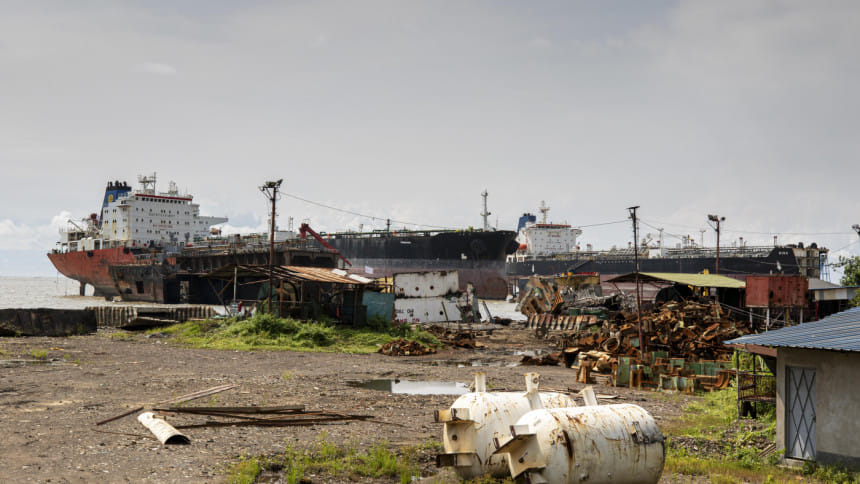Ship recycling down by a third for global conflicts

Bangladesh annually recycles around 2.5 to 3 million tonnes of scrap vessels but this has come down to around 1 million tonnes in the last two years, according to the Bangladesh Ship Breakers and Recyclers Association.
Initially this was coming about for the Russia-Ukraine war and then, when the industry was seeing improvements, the Middle East conflict suddenly broke out, said Mohammed Zahirul Islam, vice president of the association, yesterday.
Scrap vessels have become costlier in the global market for the hike in US dollar prices against the taka alongside US sanctions centring the Russia-Ukraine war, which have halted imports from the region, he said.
According to the United Nations Conference on Trade and Development, in the 12 months to January 2023, Bangladesh recycled 2.8 million tonnes of ships, accounting for 37.2 percent of the world total.
Of the total ships recycled by Bangladesh, 50.4 percent were oil tankers, 41 percent bulk carriers, 2 percent ferries and passenger ships, 1.9 percent chemical tankers, and 1.1 percent general cargo ships, said businesspeople.
Local shipbreakers and recyclers said scrap metal from the vessels is mainly used by steel re-rolling mills and shipbuilders that make barges.
The $6.5 billion steel re-rolling industry in Bangladesh gets only 10 percent of its steel from ship breaking, according to industry insiders.
"The war affected us very negatively and I think it will take a few years to regain normalcy," Islam told a fourth Bangladesh International Trade Summit 2024 at the Pan Pacific Sonargaon in Dhaka.
Styled, "Harnessing the Potential of Green Ship Recycling", the event was organised by Bigmint, a platform for price reporting, market intelligence and consulting for commodities.
Of the 130 members of the recyclers' association, only 30 to 35 are active, which shows the current state of the business, said Islam, also managing director of PHP Ship Breaking and Recycling Industries.
Espen Rikter-Svendsen, the Norwegian ambassador to Bangladesh, Dharmesh Jani, chief executive officer of the Intellects Innovative Solutions Pvt, Swaren Bedarkar, vice-president of Electrotherm India, and Gaurav Mehta, director of Best Oasis, UAE, also spoke at the event.

 For all latest news, follow The Daily Star's Google News channel.
For all latest news, follow The Daily Star's Google News channel. 





Comments